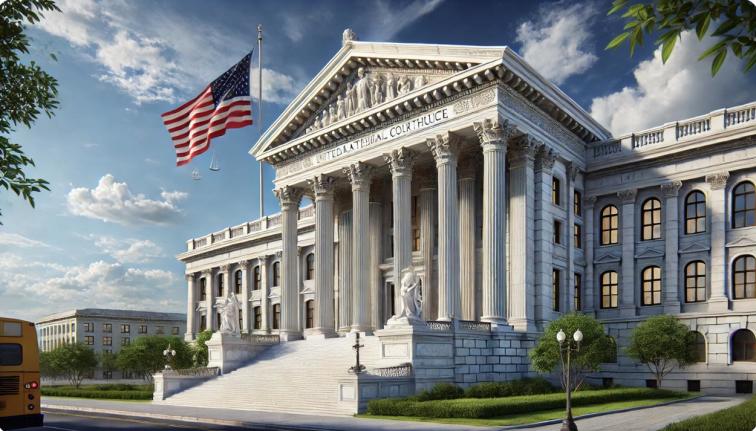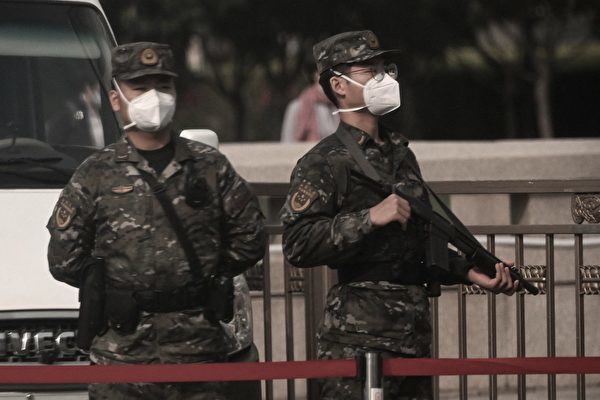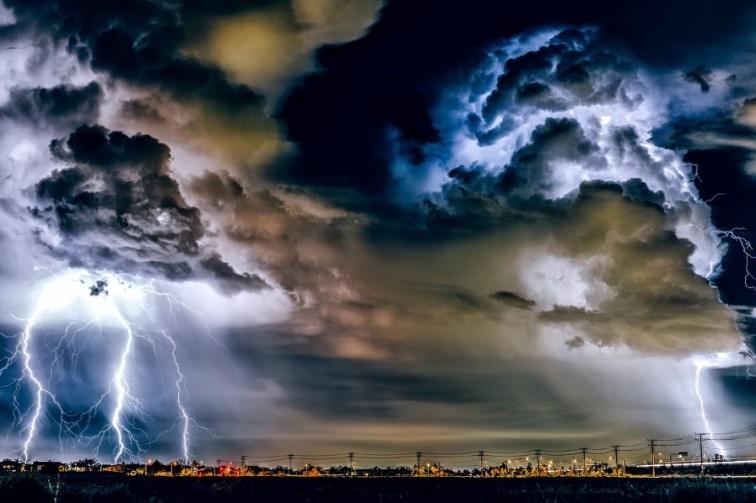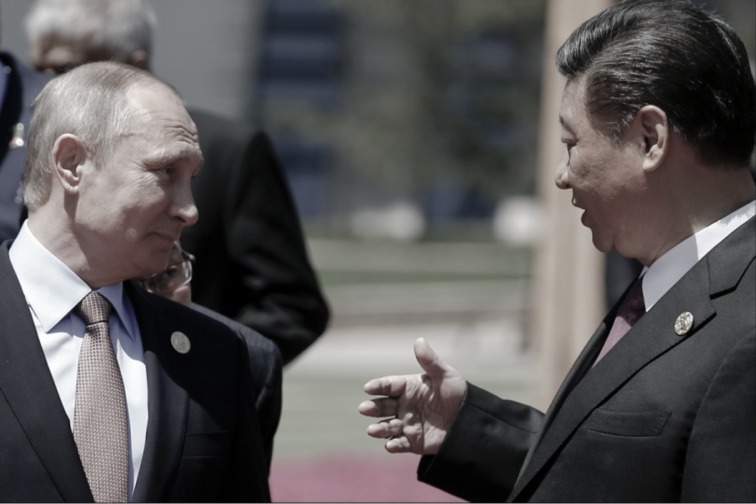March 10, 2025, Beijing Great Hall of the People—A security guard stands at the entrance before the closing ceremony of the Chinese People's Political Consultative Conference. (WANG ZHAO/AFP via Getty Images)
[People News] On July 4, 2025, just hours after a phone call between Trump and Putin, Russia launched its largest drone and missile attack to date against Kyiv and other cities in Ukraine.
Ukrainian Foreign Minister Reveals on Platform X that the CCP Assisted Russia in Bombing the Chinese Consulate
On July 5, Ukrainian Foreign Minister Dmytro Kuleba announced on social media platform X that investigators had discovered Chinese-made components in the wreckage of drones, which struck both the Chinese consulate in Odesa and the Polish consulate in Kyiv. Kuleba remarked, "Putin clearly demonstrates utter contempt for the United States and for all those advocating for an end to the war. He is doing this deliberately."
Following this, a spokesperson for the Chinese Ministry of Foreign Affairs stated, "An explosion occurred near the Chinese consulate in Odesa, causing shockwaves that damaged parts of the consulate's walls and windows. The consulate staff had already evacuated, and there were no casualties. China is closely monitoring the situation and will continue to communicate with relevant parties, taking all necessary measures to ensure the safety of Chinese institutions and personnel in Ukraine."
President Trump’s Call with Putin Suggests Sanctions Against Russia
In response to the large-scale attack by Russia on Ukraine on Friday (July 4), U.S. President Trump expressed that he was "very unhappy."
Later that day, Trump spoke with Ukrainian President Zelensky (Zé lián sī jī), and the outcome of the call appeared to be more positive. He informed reporters aboard Air Force One that the conversation 'went very well.' Zelensky remarked, 'We discussed cooperation in air defence and agreed to work together to enhance the protection of Ukrainian airspace.'
In relation to his call with Putin, Trump suggested that the United States might impose additional sanctions on Russia.
Wang Yi (Wáng yì) is trying to balance interests in Europe, wanting to have it both ways.
On July 2, Wang Yi told the EU's foreign affairs chief in Brussels that China 'does not wish to see Russia fail in Ukraine,' voicing concerns that the U.S. would redirect all its focus to China once the conflict concludes. This statement sent shockwaves through Europe, being labelled as 'a diplomatic bomb.'
He further stated, 'China and Europe are committed to dialogue and cooperation; if divisions arise, it will be challenging to form opposition. China and Europe choose openness and win-win cooperation; the trend of economic globalization will not be reversed. Together, China and Europe will uphold multilateralism, preventing the world from descending into chaos.' It is evident that Wang Yi aims to convey to Europe that the Chinese Communist Party seeks to enhance cooperation with the EU. However, Chinese-made products have been discovered on the battlefield in Ukraine.
Before Wang Yi's discussions with Karas, senior EU officials disclosed that, aside from addressing the Ukraine war, a significant portion of the conversation would focus on Iran. The EU believes that China maintains a 'special relationship' with Iran and should leverage its influence to persuade Iran to abandon its nuclear ambitions.
The Chinese Communist Party finds itself in a dilemma: should it continue with reform and opening up or revert to a dictatorial regime?
The Chinese Communist Party (CCP) once leveraged reform and opening up to gain the trust of free and democratic nations, successfully assuming the role of the 'world's factory' for a time, benefiting from globalization and presenting itself as a beneficiary of the market economy. However, since Xi Jinping took office, the situation has drastically deteriorated. Political repression, speech control, and a resurgence of ideology have reversed historical progress. Xi is attempting to single-handedly steer China back to a Maoist totalitarian path, completely rejecting the hopes that reform and opening up had brought.
The fate of dictatorial regimes is now evident. Both Russia, trapped in a quagmire and Iran, rendered powerless to retaliate, have awakened to the reality since North Korea announced its abandonment of nuclear weapons.
The choice facing the CCP has never been more challenging. On the one hand, the Xi leadership seeks to maintain 'emperor-like' rule domestically, continuing to instil fear through oppressive measures to bolster personal authority; on the other hand, the CCP must also appease the free world to sustain its legitimacy at home. The dual existence of internal totalitarianism and external openness appears to have reached its limit, with every action and statement from the CCP now under intense scrutiny from both sides.
Amidst the current political turmoil, many high-ranking CCP officials seem to be reconsidering whether to align themselves with Xi or to follow Gorbachev's example and pursue a peaceful transition. The answer to this dilemma may ultimately determine the party's future survival, as dictatorship and reform are fundamentally incompatible.
(Originally published in People News)











News magazine bootstrap themes!
I like this themes, fast loading and look profesional
Thank you Carlos!
You're welcome!
Please support me with give positive rating!
Yes Sure!